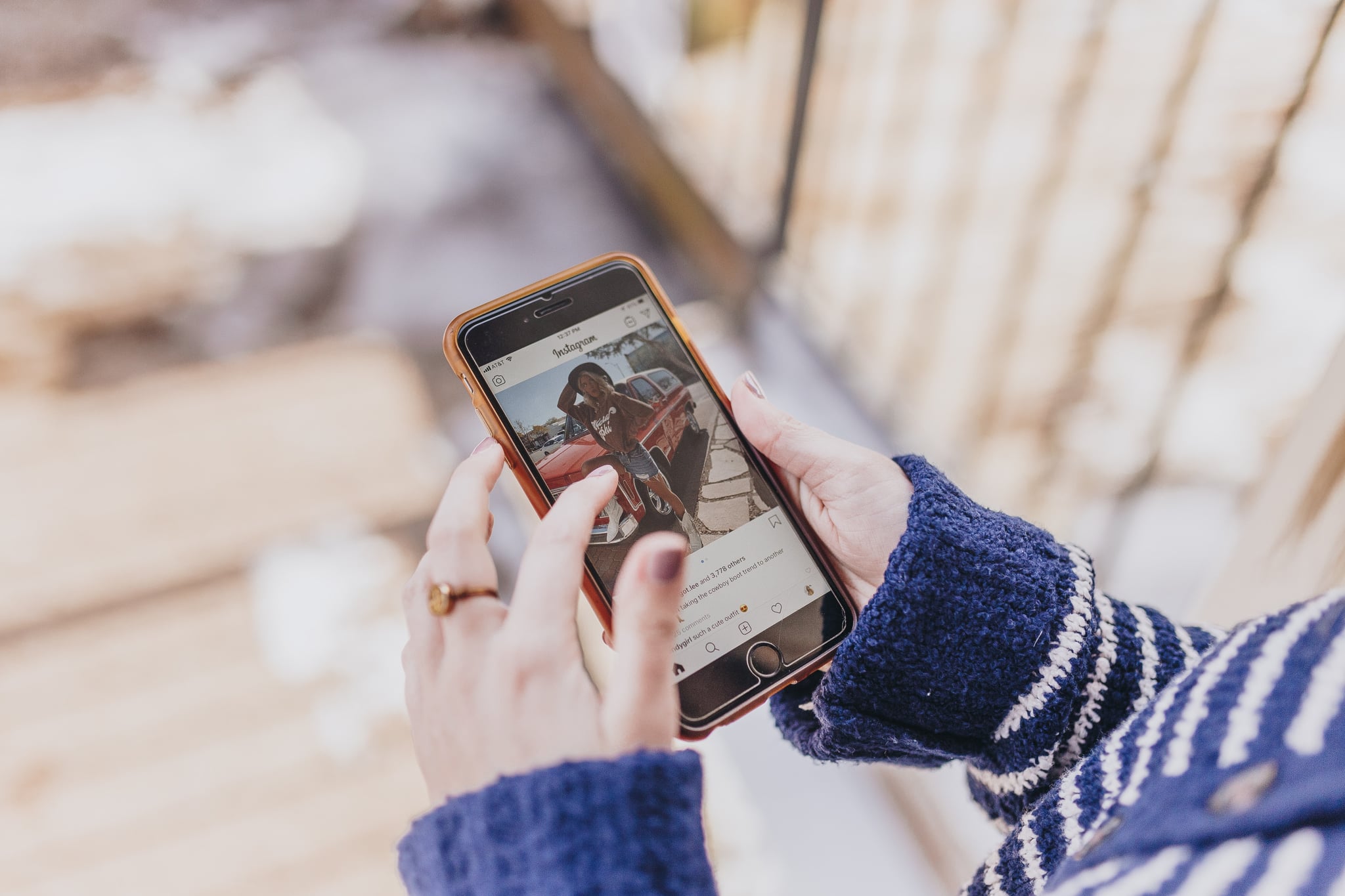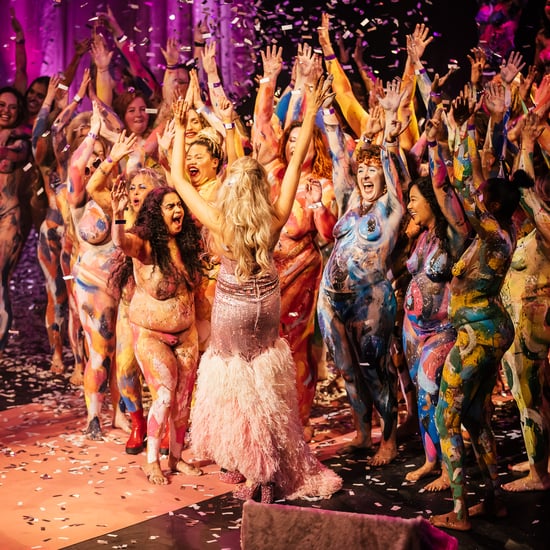How the Instagram vs. Reality Movement Wrecked My Confidence
How a Body-Positive Movement on Instagram Inadvertently Destroyed My Confidence

I've struggled with body confidence for as long as I can remember, but I never would have expected a seemingly harmless trend on Instagram to hit me quite as hard as it did.
I still remember sitting on the floor of my bedroom, running my fingers through the carpet as I cried over my phone. On the screen was yet another side-by-side photo showing a perfectly posed, perfectly edited shot of an Instagram influencer alongside a less-posed, less-edited alternative. "#instagramversusreality," the caption read. My phone screen blurred behind my tears as my face started to match the pink walls in my room. Posts like these were supposed to make me feel better about my body, not worse. "How did I get here?" I thought as I instinctively "liked" the photo that had single-handedly caused me to break down. Another salty drop washed down my cheek as my finger scrolled deeper into my feed.
When Instagram came around and I had the opportunity to fully control how the world saw me, I welcomed it with open arms.
I was pretty active growing up. I played competitive football on multiple travel teams and participated in other sports for my school during the offseason. But even back then, I remember looking at my teammates who could run faster or longer and attributing their speed and endurance to their leaner bodies. I have an older sister who lost a good amount of weight before her freshman year of high school, and I watched as she suddenly had a string of boyfriends, an envious wardrobe, and a group of "popular" friends. I naively assumed her new status was directly related to her new clothing size. My perception throughout childhood was that, in order to have a good life, you had to be skinny.
So I've always worried about my body and appearance. I've lost and gained weight more times than I can count, I've cried when old clothes didn't fit, and I've been hyperaware of my posture in public settings.
At some point, I became afraid of photos — sometimes I still am. I worried that one bad photo would dictate how people remembered me for the rest of my life. I hated the idea that there could be pictures of me floating around on someone's computer or in an album where I didn't like how I looked. So when Instagram came around and I had the opportunity to fully control how the world saw me, I welcomed it with open arms.
I think I always subconsciously felt I was putting on a front whenever I posted a carefully selected image from a string of rejects. But even so, I convinced myself "those were just bad takes" or "the camera caught me in a weird pose." I was glad to be able to share moments where I felt confident, and my photo anxiety subsided for a little while knowing I would always get the final say.
Then something changed on the internet. Feeds were no longer perfectly crafted, and images weren't so curated. Authenticity and vulnerability took over in an effort to create a space where people felt accepted for everything that made them great and everything they struggled with, too. Users opened up about mental illness and imposter syndrome, and they posted makeup-free selfies and even their "less flattering" photos.
I would see captions that said things like "taken one minute apart" highlighting two very different photos. One would show the person looking tan and lean and the next looking, well, normal. Users would explain which poses made their legs look smaller or butt bigger and proudly display the rolls that appeared on their stomach when sitting down. I learned that lighting and background mattered, and their "perfect" picture only came after hundreds of attempts.
These posts were supposed to emphasise that bodies are not defined by a single moment, that they can look completely different — though equally beautiful — from one photo to the next, and that doesn't make one more valid than the other. But I missed the whole point. The only message I got was that there's "Instagram," and then there's "reality." I started to see any picture where I looked good as fake, and all the "bad takes" and "weird poses" as how I actually looked. And I didn't like what I saw.
The only message I got was that there's "Instagram," and then there's "reality." I started to see any picture where I looked good as fake, and all the "bad takes" and "weird poses" as how I actually looked.
My perception of myself changed, and my self-confidence dropped lower than it had been before the social media app existed. When presented with two photos of myself, I deemed the worse one to be most authentic. If I looked good, I decided it was simply luck or coincidence. Any semblance of confidence I'd gained when Instagram first came to be had vanished. I started to hate pictures again and would rarely let them be taken of me.
Of course, these feelings had always been just under the surface. These posts weren't going to make my deep-seated self-esteem issues suddenly vanish, just like Instagram's launch hadn't actually cured them overnight. But even though these posts had the opposite of the intended effect on me, over time they did teach me something. I learned through these Instagram users that it's possible to love your body in every photo, angle, and moment — even if I'm not fully there yet.
Now, when I post something on Instagram, I try to remind myself that this isn't my absolute self. It's not always easy, but I'm getting better. One photo might not depict every possible way my body could look, but it also doesn't come close to showing everything else I am. I am just as beautiful as I am flawed, and that's OK. And anything I put on Instagram, good or bad, is just as real as what I don't. I still have days where I cry on my bedroom floor, but I also have a much greater appreciation for the whole picture — and isn't that the point after all?







